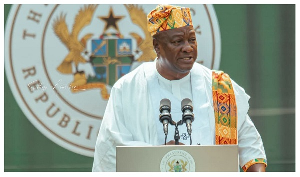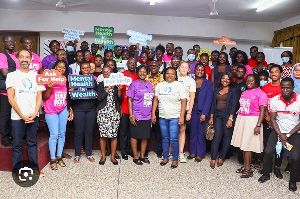Ghana Institute of Journalism (GIJ) on Saturday graduated 483 degree and diploma students with 323 being females and 160 males, thus exceeding the national policy target of 50/50.
Dr Wilberforce Dzisah, Rector of GIJ who made this known, added that the institute was graduating 152 diploma students made up of 117 females and 35 males.
The institute also awarded degrees to 331 students, with 91 constituting the regular four year students comprising 65 females and 30 males while 236 two-year top-up casing 141 females and 95 males.
The achievement has been lauded by the Ministry of Education which encouraged other institutions of higher learning to emulate the gesture.
The Rector said the persistent call for the training and production of a new corps of generational leadership is only attainable through high skills training and availability of education to promote the dream.
He stated that the institute has developed a five-year strategic plan focusing on infrastructural development and training of staff, which he said is tied to the national development objective.
Mr Samuel Okudzeto Ablakwa, Deputy Minister of Education in charge of Tertiary Education said: “I encourage other universities to adopt affirmative action and quota policies,” to address some of the inequities and disparities.
He said government is reviewing the National Council on Education act to address challenges facing the education sector.
He said when the act is revised and approved private institutions would have to go through the National Council of Education for accreditation instead of the current practice of accessing accreditation from the National Accreditation Board.
Mr Alhassan Andani, Chief Executive Officer of Stanbic Bank said: “Universities should be encouraged to raise the acceptance for students…regardless of the level of competition in a given admission year particularly female applicants.
He said access to and participation in higher education by females has generally improved numerically but added that disparity still persists.
He said gender-based disparity remains entrenched problem in higher education but geographical inequality and poverty are very profound.
Regional News of Sunday, 16 November 2014
Source: GNA
















